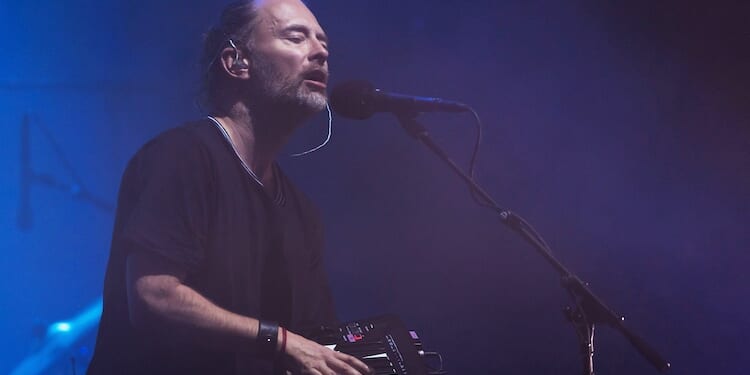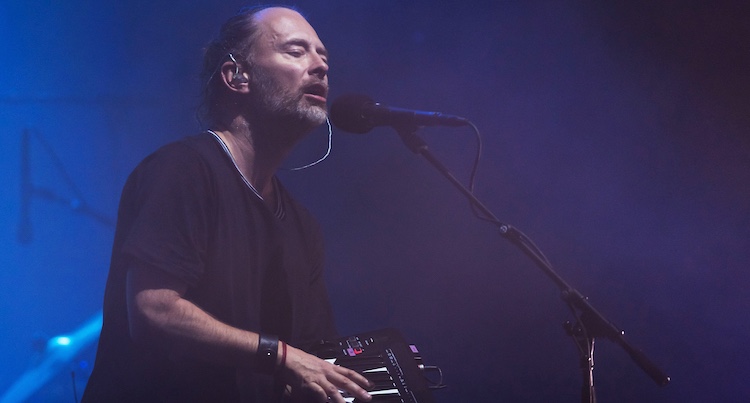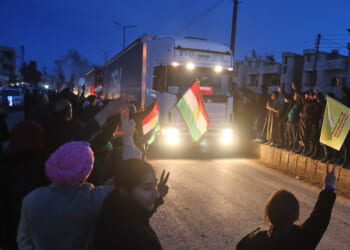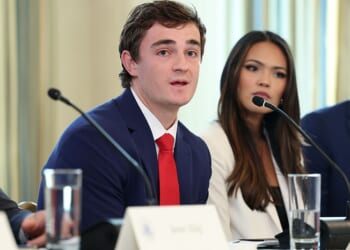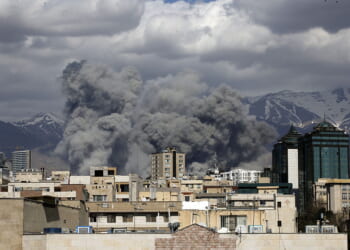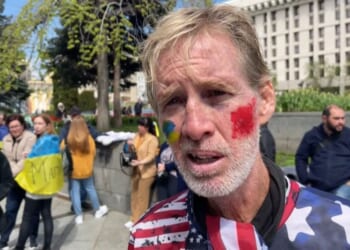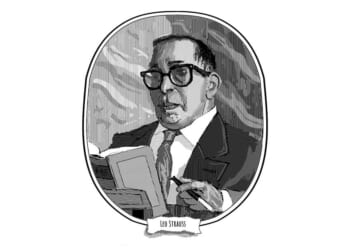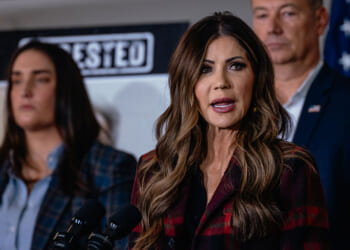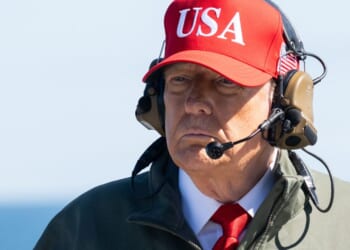Members of the band Radiohead recently sat for a fascinating interview with the Times of London that, at one point, resembled a kind of group therapy session centered on the stress of the anti-Semitic BDS movement’s hounding of the band.
Guitarist Jonny Greenwood’s wife is Israeli and he has collaborated with Israeli musicians, further enraging the band’s progressive critics and subjecting them to threats and cancellations. Greenwood noted in the interview the irony of such people calling themselves “progressive” when they are protesting against his willingness to play with a diverse array of Middle Eastern musicians. “[T]hat feels progressive to me — booing at a concert does not strike me as brave or progressive.”
What really grabs the reader about the discussion, though, is how healthy it is. Band members disagree with each other on the issue of the Arab-Israeli conflict and yet they do not hate each other. Of the BDS-nik harassment, lead singer Thom Yorke says: “It’s a purity test, low-level Arthur Miller witch-hunt. I utterly respect the dismay but it’s very odd to be on the receiving end.”
And Yorke really does “respect the dismay.” Though he has played Israel in the past, he expresses his frustration with how difficult it has become to avoid getting pulled—sometimes against one’s will—into the conflict’s sectarianism. Greenwood grants him the point: “It’s the embodiment of the left. The left look for traitors, the right for converts and it’s depressing that we are the closest they can get.”
But Greenwood pushes back on Yorke’s readiness to avoid playing in the country: “I would argue that the government is more likely to use a boycott and say, ‘Everyone hates us — we should do exactly what we want.’ Which is far more dangerous.”
Yorke notes Greenwood’s “roots” there and says he understands where his bandmate is coming from.
It’s all so civil. Yorke shares certain critiques of the Israeli government with the protesters, but he is far more bothered by their attempt to police his—everybody’s, really—art: “This wakes me up at night. They’re telling me what it is that I’ve done with my life, and what I should do next, and that what I think is meaningless. People want to take what I’ve done that means so much to millions of people and wipe me out. But this is not theirs to take from me.”
Other members of the band sat separately for interviews with the Times but evinced the same mutual respect. Guitarist Ed O’Brien is firmly on the “Free Palestine” side of the ledger, and has even praised Kneecap, which has supported Hezbollah and Hamas in the past. But in July, he pushed back on those who criticized his bandmates: “The algorithm feeds division and it’s not a place that many of us feel comfortable expressing our anger. If you do then that’s fine but people need to understand that for many of my generation, the X-ers, this is not something that is natural … so we try to avoid it… for me it’s all about the conversation in person or in a community.”
O’Brien was with the band in 2017 when they performed in Tel Aviv and says only that he thinks they “should have played Ramallah” during that trip as well. Drummer Phil Selway told the Times plainly: “What BDS are asking of us is impossible. They want us to distance ourselves from Jonny, but that would mean the end of the band and Jonny is coming from a very principled place. But it’s odd to be ostracized by artists we generally felt quite aligned to.”
Radiohead’s defense of art, friendship, civility and independence of mind are reassuring—until you realize how rare an interview like this is. Hopefully they’re part of a silent majority of artists in this regard, or the politicized monoculture is going to devour the music industry.

